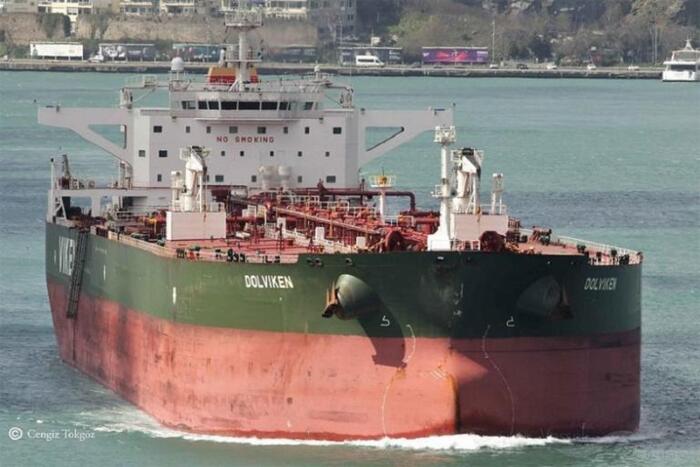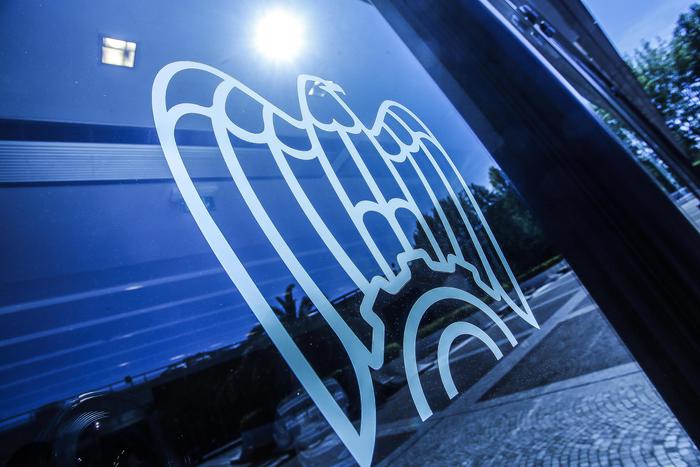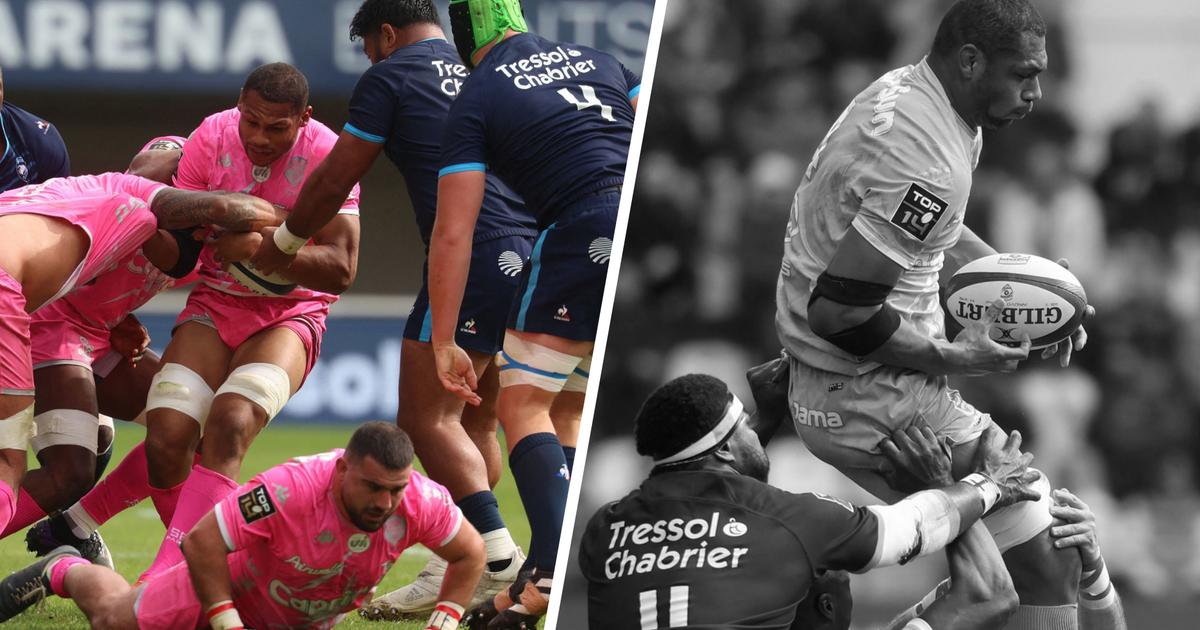This article is from the book
"Orkanfahrt - 25 captains tell their best stories"
by Stefan Krücken and first appeared on SPIEGEL ONLINE in 2008.
I have recorded every trip as a seaman in a brown notebook.
The ports, the names of the ships and the stretch of sea in between, in black ballpoint pen on lined paper.
For example, I drove to Australia exactly 31 times and passed the Statue of Liberty 22 times.
In 36 years on the seas, I have circled the earth 78 times and covered a total of 1,691,854 nautical miles.
For the story that stuck in my mind, however, I was unable to write down a port - and not a mile traveled.
Because the »Münsterland«, a freighter of the Hapag shipping company, was not allowed to move.
I stayed on board for seven months, a time between adventure and boredom, which proved that solidarity among seafarers even works between fronts.
The »Münsterland« entered the Suez Canal in a convoy on the morning of June 5, 1967 and got caught in the so-called Six Day War between Egypt and Israel.
Bombs fell on the banks next to the ships; the Egyptian flak, as reported by the news agencies, put a "fire bell" over the canal.
In the Great Bitter Lake, which is reached after about a third of the way, the opposing convoy from Port Said passed.
But when the ships wanted to start sailing towards the Mediterranean again, Egyptian pilots forbade them to continue.
A few days later the military blocked the waterway with wrecks - and now the 14 ships in the convoy, including freighters from Poland, England, Scandinavia and Bulgaria, were stranded.
Fighter jets roared over our masts
On October 16, I received the order to relieve Captain Hoffmann on board.
I flew to Cairo and waited a few days in a hotel room.
A Swedish captain was supposed to come but did not show up.
The agent of the shipping company and I drove off in a taxi.
It went through the desert for several hours;
the car was stopped at road blocks four times.
In the distance we heard gunfire.
A barge was waiting on the banks of the Bitter Lake, which brought me on board the Münsterland, carefully watched by two Egyptian military policemen.
The boat waited until Captain Hoffmann had fetched his things from the cabin.
We only had a few minutes for the handover.
We talked about the situation on the lake and the work that had been done on the ship.
Then my colleague said goodbye.
The »Münsterland« looked as if it had just come from the shipyard.
The crew, an emergency crew of 21 men, had used the time to repaint the superstructure and carry out repairs.
I immediately felt at home again on "my" ship, with which I had already made six voyages.
The mood on board?
Really good, especially when you consider that we were anchored in the middle of a war zone.
At night you could hear the muffled impact of grenades or the crack of rifles.
Again and again, fighter jets roared over our masts at low altitude.
As far as provisions were concerned, there was nothing short of anything, above all we had enough eggs on board.
About seven and a half million pieces to be precise.
(There was an order to turn the eggs regularly in the refrigerator so that they didn't go bad too quickly.)
Like in a floating men's boarding house
Because some of the other freighters also had groceries loaded, we swapped.
I remember our cook's delicious meals, lobster majo or smoked salmon or steaks.
We had Australian grapes in our cold stores, with which we regularly supplied our colleagues on the Bulgarian freighter "Vassil Levsky", who made an excellent schnapps from them.
When our apples began to get rotten, the shipping company Hapag offered them to the Egyptian government as a gift.
President Nasser personally declined in a letter, quite unfriendly by the way.
On the Großer Bittersee we lived like in a floating men's boarding house.
Health care was taken over by a doctor on board the Polish ship "Boleslaw Bierut", with a daily consultation hour from eight to eleven o'clock.
Every Sunday all officers drove in lifeboats to the German "Nordwind", to the "church" as we called it.
The hymn books, however, had handles: it was a morning pint.
Over time, deep friendships developed among the seafarers.
In the middle of a war, we provided a symbol for international understanding.
None of us knew how long we should be stuck.
We only noticed in passing that all diplomatic efforts by the governments and the UN had failed.
We had become part of a political poker game in the Middle East.
At one point, a solution to the blockade seemed near when Egyptian boats were investigating how the wrecks in the northern part of the canal could be lifted.
Because they were shot at by the Israelis, this attempt was also done.
The biggest enemy: monotony
Monotony became our greatest opponent.
We organize skat tournaments and play "Don't get angry" for hours, sail regattas in lifeboats and hold football championships on deck.
We fished, doing one crossword after another.
Every three months we received a few films from our shipping company through the agency in Cairo, which we showed in a makeshift on-board cinema;
Westerns and Heimatschnulzen were particularly popular.
Every evening I wrote down briefly what had happened that day: 28.10.
Skat;
1.11.
Diesel oil delivery;
November 19
Provisioning.
17.12.
Rain shower!
Because I had orders to keep the machine in good working order that it was ready to sail at any time, I asked to be allowed to move the ship once a month.
Our agent took care of it and, to my surprise, the Egyptian authorities complied.
We only drove a few laps in a circle, but that still offered a change.
And gave you the reassuring feeling that if the blockade was resolved, you would be able to head home straight away.
We painted the stamps ourselves
When there's little to do on board, you miss your family all the more.
Communication was difficult because telephones did not work and radio communications were generally prohibited.
We were able to send telegrams through our agency, otherwise all we could do was post.
The Egyptian censors read every line.
After all, the letters were canceled by the Egyptian post office, although we painted our own stamps when we needed it.
A Czech captain from the Lednice had the idea.
Over time, our special stamps from Bittersee actually looked professional.
Today they are coveted collectibles for philatelists all over the world.
We made the best of our situation, founded the proud Great Bitterlake Association (GBLA) and even composed an anthem for it, based on "Yellow Submarine".
The Beatles song had a special meaning for us because the ships were always covered with a yellow film after a sandstorm.
But I also remember lonely hours when you crouch in your cabin and listen to tapes.
As a captain, you can't fraternize with the crew.
Some colleagues did not get along with it that well.
I know of one person that he sought solace in alcohol and could not get away from it.
Shortly before Christmas, the crews of the four English ships began to build a Christmas tree with supplies.
Four meters high, on an anchored raft so that everyone trapped could see it.
A tree made of scraps of wood, with twigs made of folded canvas.
The lightbulbs were connected by a cable to a ship that held until shortly before New Year's Eve.
A reporter from the magazine Quick, his name was Mühmel and wearing a trench coat, brought a real Christmas tree over.
Few journalists were allowed to visit by the authorities, for a maximum of an hour and a half.
When I was relieved on May 5, 1968, I was somewhat relieved.
For the »Münsterland« the journey should take much longer.
It was not until May 24, 1975, after eight years, three months and five days, that she entered the port of Hamburg.
The German ships were the only ones that reached their home ports on their own after the blockade.
Tens of thousands cheered on the jetties, fire boats sent fountains of water into the sky, and the sirens of tugs howled.
I only know that from the newspaper, because I was on my way to Australia again.
That's what it says in my brown notebook.
About the author:
Captain Wolfgang Scharrnbeck
, born in Brandenburg an der Havel in 1920, went on his first voyage as a cabin boy at the age of 17.
In the Second World War he broke the sea blockade (with the pre-war »Münsterland«) and drove from Japan to Bordeaux.
During his time as a cadet on the training ship "Deutschland", he survived a severe hurricane.
In 1955 he made the great captain's license and worked mainly for the Hapag shipping company.
He lives in Hamburg.
For further reading:
Stefan Krücken:
Hurricane trip - 25 captains tell their best stories
.
Ankerherz-Verlag, Appel;
176 pages.
To continue listening:
Stefan Krücken: Hurricane trip - captains tell their best stories, read by Otto Sander; Random House Audio, Cologne.
Recorded by Stefan Krücken









